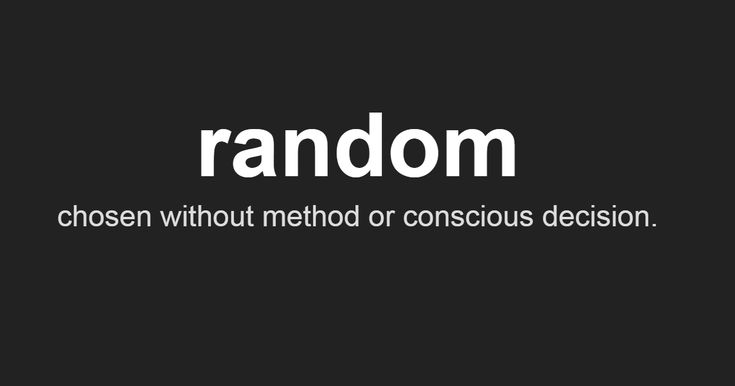Life is full of decisions—from the smallest, like choosing what to eat for lunch, to the largest, like where to live or whom to marry. Traditionally,
Life is full of decisions—from the smallest, like choosing what to eat for lunch, to the largest, like where to live or whom to marry. Traditionally, we’re taught that making good decisions means being rational, calculating outcomes, and minimizing risk. But what if, sometimes, the best decision is the random one?
While randomness is often associated with chaos or lack of control, it can serve as a powerful decision-making tool, a driver of innovation, and even a path to personal growth. In this article, we’ll explore the surprising value of randomness in modern life, from behavioral science to business, creativity, and beyond.
Mustv visit: trustedhealthcare

The Psychology of Decision-Making: Too Many Choices, Too Little Clarity
Modern life offers more choices than ever before. But more choice doesn’t always mean more freedom—it often leads to decision fatigue, overanalysis, and regret.
The Paradox of Choice
Psychologist Barry Schwartz coined the term “paradox of choice” to describe how an abundance of options can actually make us less satisfied. The more options we have, the more we fear making the wrong choice.
- Should I pick the high-paying job or the passion project?
- Which of the 200 streaming shows should I watch tonight?
- What should I wear today?
We obsess over decisions, fearing failure, judgment, or missing out. That’s where randomness can help cut through the noise.
What Is Random Decision-Making?
Random decision-making involves letting chance—rather than logic or emotion—determine a choice. This could be as simple as:
- Flipping a coin
- Using a random number generator
- Drawing options from a hat
- Letting a spinning wheel decide your next vacation
To many, this sounds reckless or silly. But in specific contexts, intentional randomness can lead to more confident decisions, reduce stress, and inject novelty into life.
Benefits of Using Randomness in Daily Life
1. Freedom from Overthinking
Randomness can free you from overanalyzing low-stakes decisions. Instead of wasting time comparing 50 restaurants, let a coin flip decide between two. You’ll eat faster and save mental energy.
2. Neutralizing Bias
Random selection removes unconscious bias. If you need to choose a team member for a project or assign chores fairly, letting randomness decide avoids favoritism or politics.
3. Boosting Creativity
Creative professionals often use random prompts or techniques to break out of repetitive patterns. Randomness can spark ideas your conscious mind wouldn’t think of.
Examples include:
- Writing a story using three random words
- Generating abstract music from random patterns
- Starting a painting based on a shuffled image deck
4. Encouraging Exploration
Humans tend to stick with what’s familiar. Randomness pushes you out of your comfort zone. Try visiting a random city, cooking a random recipe, or talking to a stranger. New experiences often yield new insights.
Randomness in Business and Innovation
Randomness isn’t just a personal tool—it also drives innovation in business and science.
A/B Testing and Randomization
Tech companies use randomized testing to compare versions of websites or apps. A subset of users gets one version, another subset gets another. By tracking which performs better, companies make data-driven improvements.
Innovation by Accident
Many major inventions came about by chance:
- Penicillin was discovered because of a mold contaminating a petri dish.
- The microwave oven originated from a melted chocolate bar in a scientist’s pocket.
- Post-it Notes were invented when a scientist randomly created a weak glue.
These weren’t random in the sense of being meaningless—they were random in origin but useful when recognized and applied.
Business Strategy
Companies sometimes use random or semi-random methods to encourage bold thinking. For example:
- Randomly pairing team members from different departments
- Encouraging teams to pitch “wild card” ideas during product development
The Science Behind Randomness as a Strategy
Random behavior, especially in complex or adversarial environments, can offer advantages. Here’s how:
Game Theory and Mixed Strategies
In strategic games, predictability is a weakness. For example, if you always serve the ball the same way in tennis, your opponent will exploit it. Game theory shows that mixing strategies randomly keeps opponents off guard.
This has applications in:
- Military tactics
- Cybersecurity
- Negotiation strategies
Artificial Intelligence and Exploration
In AI and machine learning, exploration is key. Algorithms often make random decisions early on to explore possible solutions before optimizing the best ones. Without randomness, they might get stuck in suboptimal results.
The Limits and Dangers of Randomness
While randomness has its place, it’s not suitable for every decision.
High-Stakes Decisions
Life-changing choices—like medical treatment, legal strategy, or financial investment—require careful consideration. Randomness shouldn’t replace logic in high-risk scenarios.
Avoiding Responsibility
Random decision-making can become a way to avoid accountability. Saying “the coin made me do it” isn’t helpful when others are affected.
False Randomness
Humans are bad at creating randomness. We tend to subconsciously avoid patterns (like never flipping “heads” three times in a row), leading to predictable “randomness.”
For decisions that require fairness, using algorithmic or physical randomness (like dice or number generators) is more reliable.
Randomness as a Lifestyle: The Rise of “Yes” Experiments
Some people have embraced randomness as a lifestyle experiment. Books like “Yes Man” (where the author says “yes” to every opportunity) and “The Dice Man” (where all decisions are made by rolling dice) explore the psychological effects of surrendering control to chance.
While extreme, these experiments highlight a key insight: letting go of control can be liberating, especially when our desire for control causes stress.
Benefits Noted in These Experiments:
- Increased spontaneity and joy
- More social connection
- Lower stress from decision-making
- Greater self-awareness
How to Safely Use Randomness in Life
Randomness doesn’t have to mean chaos. Here’s how to use it intentionally and constructively:
1. Define the Boundaries
Limit random choices to safe, low-risk areas of life:
- What to wear
- What route to take home
- What new hobby to try this weekend
2. Choose Your Tools
Use reliable tools like:
- Coin flips
- Dice
- Digital randomizers
- Shuffle functions on playlists or apps
3. Make It a Game
Turn boring routines into fun challenges:
- Roll a die to pick dinner
- Spin a wheel to assign chores
- Shuffle your workout options
Gamification increases motivation and reduces monotony.
4. Reflect on the Outcome
After making a random decision, reflect:
- How did it feel?
- Did it lead to something unexpected?
- Would I try it again?
This builds self-awareness and reduces anxiety around not always being in control.
FAQs About Random Decision-Making
Q1: Is using randomness a form of giving up control?
A: Not necessarily. Choosing to use randomness is an act of control. You’re setting boundaries and deliberately letting go in low-stakes situations to reduce stress or explore new possibilities.
Q2: Can randomness help with anxiety?
A: Yes, for some people. Making too many decisions can increase anxiety. Letting randomness guide simple choices can create relief and build confidence in dealing with uncertainty.
Q3: Is it ethical to make random decisions that affect others?
A: It depends. If randomness ensures fairness (like drawing lots for a task), it can be ethical. But for decisions with serious consequences, logic, consent, and responsibility should take priority.
Q4: Can random decisions lead to better outcomes?
A: Sometimes, yes. Especially when we’re overwhelmed or biased, randomness can bypass mental traps and reveal options we might otherwise ignore.
Q5: How can I start using randomness more in life?
A: Start small. Use a random number generator to pick your weekend activity. Try a random recipe. Let your playlist shuffle. Over time, you’ll learn where randomness enhances your life and where structure works better.
Final Thoughts: Life Is Already Random—So Why Not Use It?
Every major life event—where you’re born, who you meet, what jobs you find—is shaped by some level of randomness. Trying to control every variable can be exhausting and often impossible.
Instead, learning to embrace randomness where appropriate can open doors to:
- Creativity
- Simplicity
- Fairness
- Freedom
You don’t have to roll the dice on every decision. But when life feels stuck, stressful, or stale, introducing a little randomness might be just the shake-up you need.
Whether it’s flipping a coin to decide dinner or letting chance guide a new experience, randomness isn’t your enemy—it’s a hidden ally waiting to be explored.




COMMENTS